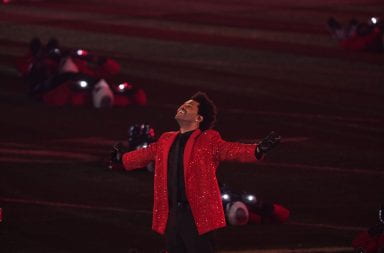The 59th Grammy Awards will be broadcasted on Sunday, and are considered the music industry’s highest distinction.
However, some critics question whether the award can truly be considered that much of an honor.
In 2014, Grammy voter and journalist Rob Kenner publicly wrote in a piece in Complex magazine that the Grammy Award nomination process is “fatally flawed.”
Mark Rubinstein, an audio engineer and music, media and enterprise expert at Ohio State’s School of Music, is a voting member of merits for the Grammys. Members like Rubinstein start off by voting to decide who should be nominated in the categories in which they have expertise. He votes in engineering and producing.
According to the Grammy’s official website, “Recording Academy Voting Members are professionals with creative or technical credits on six commercially released tracks.”
Once the nominations have been decided, they are then invited to vote in 15 of the 30 genre categories and the main awards in the general category for the winner.
“We all vote for Album of the Year, Song of the Year, you know, the main categories,” Rubinstein said. “Then the things I actually know the most about are country, jazz and classical music, so I vote for every category in those.”
Rubinstein said he chose to vote in the genres he knew most about, however, he didn’t have to. In this round of voting, members are allowed to vote in any 15 genres they want, even though they’re encouraged to stay with what they know. He said many voters that are in the same field tend to vote the same way.
“A lot of the voting gets slanted because a lot of the people who work for major record labels are members of merits and they tend to vote in bulk,” Rubinstein said. “It’s insiders who vote for these people, and they’re not necessarily experts in the genres they vote in.”
The final nominees and winners are then determined by the anonymous Special Nominating Committee, established in the mid 1990s. The only information given on this committee on the Grammy’s website is that the committee is comprised of “voting members from all of the Academy’s Chapter cities.” This committee has the power to override votes in the four biggest categories — Album of the Year, Record of the Year, Song of the Year and Best New Artist.
Critics, including Kenner, have claimed that the committee’s choices seem to be more focused on TV ratings, rather than fair judgment of the artists in these categories. Kenner wrote that although they might not have knowledge in the category, they will just end up voting for whichever name they recognize, and change the results.
“If anything seems ‘off’ they make the necessary adjustments and keep it moving,” Kenner wrote.
Beyonce leads the 2017 Grammy nominees, with nine nominations for her album “Lemonade.”
She will go up against Adele, in what people are calling the “battle of the divas,” in each of the three top categories: Album of the Year, Record of the Year, and Song of the Year. Drake and Rihanna also join the top with eight nominations each.
The Recording Academy explains on their website that the “Grammys are the only peer-presented award to honor artistic achievement, technical proficiency and overall excellence in the recording industry, without regard to album sales or chart position.”
Drake, Adele, Beyonce and Rihanna make up the top four album sellers of 2016 in the United States.
Alex Arseneau, Vice President of Musician’s Collective at OSU, said the fact that the Grammy’s is a popular televised event takes away from the credibility of the award.
“A lot of the big categories that are actually televised have kind of lost credibility,” Arseneau said. “It’s a little bit of a popularity contest. The other categories, like the more obscure genres, I think they still have credibility.”
However, this year, the committee has made some unprecedented moves.
The Recording Academy allowed Chance the Rapper to be nominated this year for the first time, even though he has never produced any physical albums. He is the first streaming-only artist to be nominated in Grammys history. He has seven nominations in five categories.
“I’m always interested in seeing who wins in hip-hop. The hip-hop genre is one of the most innovative genres right now and Chance the Rapper should win it,” Arseneau said.
Rubinstein said this year’s nominations are actually broader and more inclusive than those in years past.
“Sturgill Simpson, for example, was nominated for Album of the Year and that’s a pretty bold and strange choice,” Rubinstein said. “So, the fact that he made the top five out of the hundreds that we vote on in the first round is pretty impressive.”


